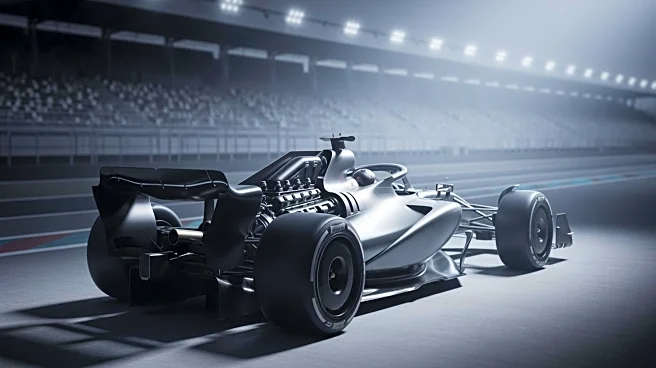What's Happening?
Max Verstappen, the reigning four-time world champion, is set to start the Sao Paulo Grand Prix from the pit-lane after qualifying 16th, marking the first time he failed to progress through Q1 on merit. This decision follows Red Bull's choice to fit a new
engine and a different floor to his car, reverting to the setup used in Austin where Verstappen previously won. The changes were made outside F1's parc fermé regulations, necessitating a pit-lane start. Verstappen is currently 39 points behind championship leader Lando Norris, who starts from pole position. Despite the setback, Red Bull hopes for a repeat of Verstappen's previous success at this circuit, where he drove from 17th to first under challenging conditions.
Why It's Important?
This development is significant as it impacts the championship race, with Verstappen trailing leader Lando Norris by 39 points. Starting from the pit-lane presents a strategic disadvantage, as Verstappen will not participate in the formation lap and will face an immediate time loss. However, the fresh engine and setup could provide a performance boost, potentially allowing him to make up ground during the race. The outcome of this race could influence the championship standings, especially with Norris extending his lead by winning the sprint race. Verstappen's performance will be crucial in determining whether he can remain a contender in the title fight.
What's Next?
Following the Sao Paulo Grand Prix, the F1 season will continue with three races in three weeks, concluding in Las Vegas, Qatar, and Abu Dhabi. Verstappen's performance in Brazil will be pivotal in shaping his championship prospects. An early Safety Car period could benefit Verstappen, allowing him to close the gap with the leaders. The upcoming races will be critical for both Verstappen and Norris, as they vie for the championship title. Stakeholders, including teams and fans, will closely watch the developments, anticipating potential shifts in the standings.
Beyond the Headlines
The decision to start from the pit-lane highlights the strategic complexities teams face in F1, balancing regulations with performance enhancements. Verstappen's situation underscores the importance of adaptability and resilience in motorsport, as drivers and teams navigate technical challenges and competitive pressures. The race at Interlagos, known for dramatic moments, could offer insights into the evolving dynamics of the championship battle, influencing future strategies and decisions.
















